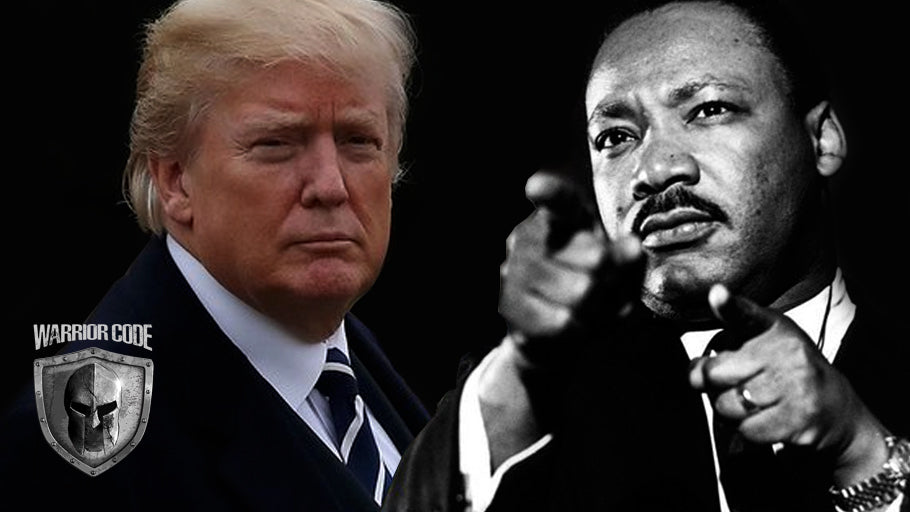
Trump signs bill to upgrade Martin Luther King's birthplace to national historic park
Share
WASHINGTON — President Trump signed a bill Monday to expand the Rev. Martin Luther King's birthplace in Atlanta into a national historical park — the first such park in Georgia. Trump signed Martin Luther King, Jr. National Historical Park Act of 2017 aboard Air Force One after touching down in Marietta, Ga., to attend the college football national championship game between the University of Alabama and the University of Georgia.
Trump signed Martin Luther King, Jr. National Historical Park Act of 2017 aboard Air Force One after touching down in Marietta, Ga., to attend the college football national championship game between the University of Alabama and the University of Georgia.
Alveda King, niece of the slain civil rights leader, joined Trump for a small, private bill-signing ceremony aboard Air Force One.
"Through his life and work, Dr. Martin Luther King Jr. made America more just and free," White House deputy press secretary Hogan Gidley told reporters aboard the plane. "This important historical park tells his story, and this bill will help ensure that the park continues to tell Dr. King’s story for generations to come."
The national historical site in Atlanta already includes King's birthplace, the church where he was baptized, and his burial place. The legislation Trump signed Monday upgrades the designation to a national historical park, and expands the boundaries to include the Prince Hall Masonic Temple.
The temple served as the headquarters of the Southern Christian Leadership Conference, the civil rights group King co-founded.
The bill was sponsored by Rep. John Lewis, D-Ga., who said the change would significantly improve the way the National Park Service preserves, shares and presents King's legacy to visitors.
The nation will celebrate a federal holiday named for King on Monday.
Earlier Monday, Trump signed a related bill, the African American Civil Rights Network Act of 2017, which requires the National Park Service to link various historical sites related to the civil rights movement.
He also signed the 400 Years of African-American History Commission Act to commemorate the arrival of the first Africans in the English colonies at Point Comfort, Va., in 1619.
Source: Gregory Korte, USA TODAY - Jan 2018
